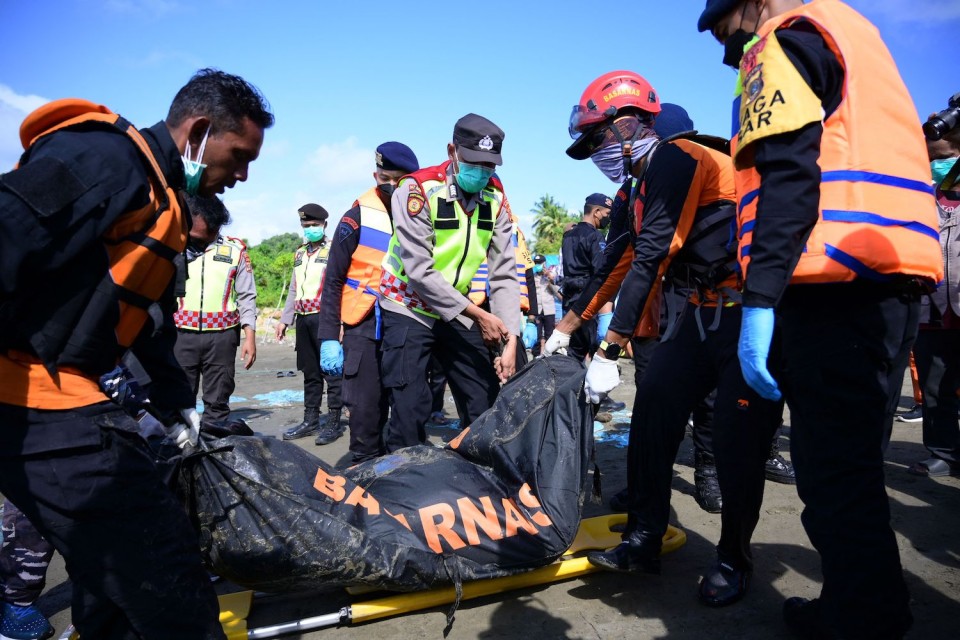
ACEH JAYA, Indonesia, March 23, 2024 (AFP) – The bodies of two Rohingya refugees were retrieved and several more were spotted at sea Saturday, local rescuers said, days after a wooden boat believed to be carrying around 150 people capsized, leaving many missing or dead.
The mostly Muslim ethnic Rohingya are heavily persecuted in Myanmar, and thousands risk their lives each year on long and expensive sea journeys, often in flimsy boats, to try to reach Malaysia or Indonesia.
Indonesian rescuers called off the search for any remaining Rohingya refugees on Friday despite reports from some of the survivors that dozens of people were swept away on Wednesday when their boat and another trying to help them capsized.
More than half a dozen bodies were spotted by fishermen on Saturday, but only two bodies were retrieved, authorities said.
“We evacuated only two people. Both were females,” Mirza Safrinadi, Aceh Jaya Search and Rescue Operation chief, told reporters.
“It’s confirmed, they are Rohingyas. According to the fishermen’s information, there are several more victims who drowned.”
United Nations refugee agency (UNHCR) protection associate Faisal Rahman told AFP “two (bodies were) already evacuated, the rest are still in the process”.
On Thursday, authorities staged a dramatic rescue of 69 Rohingya who had been adrift at sea for weeks before the boat capsized, with many found clinging to the hull of the overturned vessel. Six others were rescued by fishermen on Wednesday.
From mid-November to late January, 1,752 Rohingya refugees, mostly women and children, landed in the Indonesian provinces of Aceh and North Sumatra, according to the UNHCR.
The UN agency said it was the biggest influx into the Muslim-majority country since 2015, driven by worsening conditions in squalid camps in Bangladesh and the continuing threat of violence in the Rohingya’s native Myanmar.







